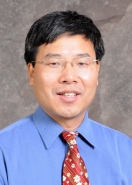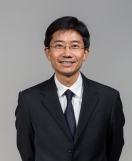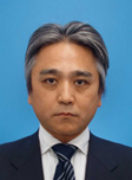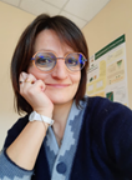Keynote Speakers

In order to deepen the communication in all the participants, ICCBB 2025 have invited
professors from all over the world to have speeches about
Computational Biology and Bioinformatics and related fields.

Keynote Speaker I

Prof. FangXiang Wu
University of Saskatchewan
Dr. FangXiang Wu is currently a full professor in the Departments of
Computer Science, Division of Biomedical Engineering, and the Department
of Mechanical Engineering at the University of Saskatchewan. He is a
Fellow of the Institute of Electrical and Electronics Engineers (IEEE),
a Fellow of the Institution of Engineering and Technology (IET), and a
Fellow of the Asia-Pacific Artificial Intelligence Association (AAIA).
He is a recipient of the University of Saskatchewan Distinguished
Researcher Award (the institution’s highest research honour). His
research interests include Artificial Intelligence, Machine/Deep
Learning, Computational Biology, Health Informatics, Medical Image
Analytics, and Complex Network Analytics. Dr. Wu has published over 500
journal or conference papers. His total Google scholar citations are
over 18,400 and h-index is 74. He is among top 2% world’s scientists
ranked by Stanford University. Dr Wu is serving as the editorial board
member of several international journals (including IEEE TCBB,
Neurocomputing, etc.) and as the guest editor of numerous international
journals, and as the program committee chair or member of many
international conferences.
Speech Title: "Artificial Intelligence for Biomarker Discovery"
Abstract: A biomarker, or biological marker is a measurable indicator
of some biological state or condition. Molecular biomarkers, including genes,
proteins, all sorts of non-coding RNAs (e.g., microRNAs, circRNAs, etc), have a clinical role in diagnosis,
treatment, and prognosis of diseases. With the availability of various validated biological/ biomedical data,
artificial intelligence approaches become powerful tools to predict various molecular biomarkers.
In this talk, after brief introductions to artificial intelligence, I present several machine learning or
deep learning models developed by my research group in past years for biomarker discovery,
including network energy-based methods and deep belief networks for predict disease genes,
deep matrix factorization, variational autoencoder, deep factorization machine for predicting disease-related microRNAs.
Keynote Speaker II

Prof. Wing-Kin Sung
The Chinese University of Hongkong, and
Hongkong Genome Institute
Professor Wing-Kin Sung is a Global STEM Professor in the Department of
Chemical Pathology, the Chinese University of Hong Kong. He is the
director of the JC STEM Lab of Computational Genomics. His recent
research focuses on identifying genomic mutations from high-throughput
sequencing data and on understanding the relationship between mutations
(in particular, structural variations) and diseases. Prof. Sung received
both the B.Sc. and the Ph.D. degree in the Department of Computer
Science from the University of Hong Kong in 1993, 1998, respectively. He
has over 25 years of experience in Algorithm and Bioinformatics
research. Prior to joining CUHK, Professor Sung was a Professor in the
Department of Computer Science at the National University of Singapore
(NUS) and was a senior group leader at the Genome Institute of
Singapore. He is an expert in the field of bioinformatics, who has been
leading the development of a number of bioinformatics software and has
over 290 high impact papers published in renowned academic journals,
including Bioinformatics, Cell, Nature, Nature Genetics and Nucleic
Acids Research. In recognition of his research contributions, Professor
Sung was conferred the FIT Paper Award (Japan) in 2003, the National
Science Award (Singapore) in 2006, and the Young Researcher Award (NUS)
in 2008. He has also served in the programming committee for over 70
international conferences.
Speech Title: "Improved Repeat-aware CNV Calling and its Clinical
Application"
Abstract: Deletions and tandem duplications (commonly called CNVs)
represent the majority of structural variations in a human genome. They
can be identified using short reads, but because they frequently occur
in repetitive regions, existing methods fail to detect most of them. To
improve the detection rate, we introduce a new CNV short reads-based
caller named SurVIndel2. SurVindel2 builds on statistical techniques we
previously developed, but also employs a novel type of evidence, hidden
split reads, that can uncover many CNVs missed by existing algorithms.
Comparing with other popular callers, SurVIndel2 outperforms them both
on human and non-human datasets. We demonstrate the practical utility of
the method by generating a catalogue of CNVs for the 1000 Genomes
Project that contains hundreds of thousands of CNVs missing from the
most recent public catalogue. Furthermore, we also illustrate the
improvement in CNV calling can help to find disease-causing CNVs in real
samples.
Invited Speakers


Prof. Wataru Nemoto
Tokyo Denki University
Dr. Dr. Wataru Nemoto is a Professor at the School of Science and
Engineering, Tokyo Denki University, where he leads research in
computational biology and bioinformatics. His work focuses on the
molecular mechanisms of G protein-coupled receptors (GPCRs),
particularly their oligomerization, signaling bias, and interaction
networks, integrating large-scale omics data and machine learning
approaches. Before joining Tokyo Denki University, he served as a
researcher at the Computational Biology Research Center (CBRC), Advanced
Industrial Science and Technology (AIST), and as a JSPS Research Fellow
at the University of Cambridge and Nara Institute of Science and
Technology. Dr. Nemoto’s research bridges life science and data science,
developing computational methods for protein–protein interaction
prediction, receptor pharmacology, and molecular design. He has
published extensively in bioinformatics and molecular pharmacology
journals and actively promotes interdisciplinary collaboration between
biological and computational sciences.
Speech Title: "Computational Analyses to Elucidate the Molecular
Basis Of GPCR-GPCR Interactions "
Abstract: G protein-coupled receptors (GPCRs) mediate a wide variety of
physiological responses. Their function is governed not only by
individual receptors but also by the interaction networks formed among
multiple GPCRs. Such GPCR-GPCR interactions play crucial roles in
diversifying signal transduction, modulating pharmacological responses,
and contributing to various diseases. However, the structural basis
underlying GPCR oligomerization remains poorly understood. To address
these challenges, we have focused on three research directions:
predicting GPCR interaction pairs from amino acid sequences and
structural information; developing methods to extract and predict
structural features of interaction interfaces; and analyzing the
physicochemical properties and binding modes of small-molecule ligands
that engage GPCR interaction pairs. These efforts provide essential
insights into the molecular determinants of GPCR-GPCR interactions and
their potential pharmacological significance. In this presentation, we
introduce these methodologies and discuss the functional and
pharmacological implications of GPCR oligomerization revealed through
their application.

Assoc. Prof. Giuditta Franco
University of Verona
Giuditta Franco graduated in Mathematics at the University of Pisa, and
earned her PhD in Computer Science, with a dissertation titled
Biomolecular Computing — Combinatorial Algorithms and Laboratory
Experiments, at University of Verona, where she is currently an
associate professor. She spent several periods in the United States, at
the University of South Florida and at the SUNY ”Binghamton University”,
and in Holland, at Leiden Institute of Advanced Computer Science as a
visiting scholar. She gave talks in several international workshops and
she is co-author of about sixty scientific papers. Her research
interests place across discrete mathematics and theoretical computer
science, with focus on computational models of biological systems and
natural computing, namely Membrane and DNA computing. Her work involved
informational analysis of DNA sequences and dynamical modelling, by
means of membrane systems, of cellular tissue healing, of metabolic,
immunological, and epidemiological processes. She advanced analytical
and experimental studies of biomolecular algorithms, data-driven models
of cellular processes, and genome wide computational investigations.
Speech Title: "RDD based Classification of Microbial Species
Abstract: Bone drilling is a common procedure in many surgical
departments, where excessive heat generation and poor tool design can
lead to thermal necrosis and postoperative complications. This talk
presents an integrated approach that combines computational simulation
and experimental validation to study thermal and mechanical responses
during bone drilling. Finite element models were developed to capture
temperature distribution, cutting forces, and stress fields, while
experiments validated simulation predictions under various cutting
conditions. Particular emphasis is given to surgical drill bit design,
exploring geometrical modifications that improve cutting efficiency and
minimize heat generation. The findings demonstrate that optimized drill
geometry and process parameters can significantly enhance surgical
safety and efficiency, providing valuable guidelines for tool design and
clinical practice. By linking simulation, materials science, and
biomedical engineering, this research establishes a systematic framework
to improve surgical drilling technology and outcomes.

Dr. Mohd Faizal Ali Akbar
Universiti Malaysia Terengganu
Dr. Mohd Faizal Ali Akhbar is a researcher and lecturer at Universiti
Malaysia Terengganu, where he serves under the Maritime Technology and
Naval Architecture programs. His current research focuses on bone
drilling simulation and experimentation, surgical drill bit design, and
simulation of related processes, with the goal of improving surgical
precision, reducing thermal damage, and enhancing patient safety. He is
the Principal Investigator of a research project funded by the Ministry
of Higher Education, Malaysia, and also contributes as a co-investigator
in several interdisciplinary grants involving materials engineering and
fluid mechanics. Dr. Akhbar has published in reputable international
journals and presented at numerous academic conferences. His work
integrates computational modeling, advanced manufacturing, and
biomedical engineering, bridging the gap between engineering innovation
and clinical applications. His broader research interests include
biomaterials for surgical tools, sustainable materials in biomedical
applications, and fluid–structure interaction simulations.
Speech Title: "Coupling Simulation and Experiment for Optimized Bone
Drilling in Surgical Applications"
Abstract: Bone drilling is a common procedure in many surgical
departments, where excessive heat generation and poor tool design can
lead to thermal necrosis and postoperative complications. This talk
presents an integrated approach that combines computational simulation
and experimental validation to study thermal and mechanical responses
during bone drilling. Finite element models were developed to capture
temperature distribution, cutting forces, and stress fields, while
experiments validated simulation predictions under various cutting
conditions. Particular emphasis is given to surgical drill bit design,
exploring geometrical modifications that improve cutting efficiency and
minimize heat generation. The findings demonstrate that optimized drill
geometry and process parameters can significantly enhance surgical
safety and efficiency, providing valuable guidelines for tool design and
clinical practice. By linking simulation, materials science, and
biomedical engineering, this research establishes a systematic framework
to improve surgical drilling technology and outcomes.